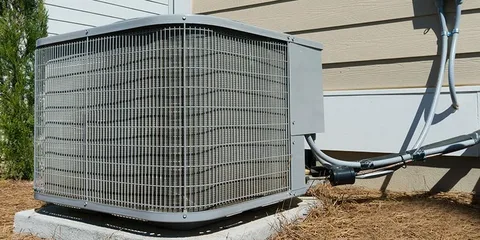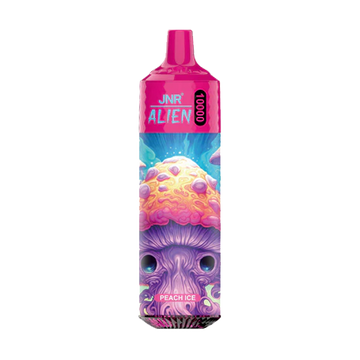Everything You Need to Know About an AC Condenser Unit
The AC condenser unit is a vital component of any air conditioning system, responsible for converting the refrigerant from a gas to a liquid to provide cooling. While many people may not give much thought to the condenser, its functionality and maintenance are critical for ensuring your air conditioner operates efficiently. Below, we’ll dive into what an AC condenser unit is, how it works, common problems, and tips for maintenance.
What Is an AC Condenser Unit?
The AC condenser unit is typically located outside your home and works as part of the cooling process. It consists of several key components, including the condenser coil, compressor, fan, and various electrical controls. These parts work together to transfer heat from inside your home to the outside, helping to keep your indoor environment cool and comfortable.
Without the condenser, your air conditioning system wouldn’t be able to perform the heat exchange process, making it one of the most crucial elements in the cooling system.
How Does an AC Condenser Unit Work?
The AC condenser unit operates through a series of processes that involve heat transfer and refrigerant circulation. Here’s how it works:
- Compression
The process starts with the compressor, which compresses the refrigerant gas, increasing its temperature and pressure. - Heat Dissipation
The refrigerant flows through the condenser coil, where the fan blows air over the coil. This helps to dissipate heat from the refrigerant into the surrounding air. - Condensation
As the refrigerant loses heat, it changes from a high-pressure gas to a high-pressure liquid. This liquid refrigerant then moves to the evaporator coil inside your home to absorb indoor heat.
By efficiently releasing heat, the condenser unit plays a significant role in the air conditioning cycle.
Common Problems with AC Condenser Units
While AC condenser units are built to last, they are not immune to issues. Here are some of the most common problems:
1. Dirty Condenser Coils
Over time, dirt, debris, and grime can accumulate on the condenser coils. This reduces the unit’s ability to release heat, forcing the system to work harder and increasing energy consumption.
2. Refrigerant Leaks
A refrigerant leak can disrupt the cooling cycle, leading to insufficient cooling or a complete system failure.
3. Faulty Fan
If the condenser fan isn’t working correctly, the unit cannot dissipate heat effectively. This could cause the compressor to overheat and fail.
4. Electrical Issues
Problems such as damaged wiring, blown fuses, or faulty capacitors can prevent the condenser unit from functioning.
5. Compressor Failure
As the heart of the system, the compressor can fail due to wear and tear, electrical issues, or overheating. A broken compressor often requires a costly replacement.
Signs Your AC Condenser Unit Needs Attention
It’s essential to recognize the warning signs of a failing condenser unit to prevent costly repairs. Look out for:
- Warm air blowing from vents.
- Strange noises from the outdoor unit.
- Frequent system shutdowns or cycling.
- Increased energy bills.
- Visible leaks or debris on the condenser unit.
If you notice any of these issues, it’s time to call a professional HVAC technician.
Maintaining Your AC Condenser Unit
Regular maintenance can prolong the lifespan of your AC condenser unit and improve its efficiency. Here are some simple yet effective maintenance tips:
1. Keep the Unit Clean
Regularly clean the area around the condenser unit to remove leaves, dirt, and debris. A clear area ensures proper airflow and heat dissipation.
2. Inspect the Coils
Check the condenser coils for dirt and grime. Use a soft brush or coil cleaner to keep them clean.
3. Check the Refrigerant Level
Low refrigerant levels can hinder cooling performance. If you suspect a leak, contact an HVAC technician to address the issue.
4. Test the Fan and Motor
Make sure the fan is running smoothly. Any unusual noises or vibrations could indicate a problem with the motor or blades.
5. Schedule Professional Maintenance
Annual tune-ups by an HVAC professional can help identify and resolve potential issues before they become costly repairs.
Replacing Your AC Condenser Unit
If your condenser unit is beyond repair or has reached the end of its lifespan, replacement may be necessary. Here are some factors to consider:
1. Age of the Unit
Most condenser units last between 10 to 15 years. If yours is older and requires frequent repairs, replacement may be more cost-effective.
2. Efficiency
Upgrading to a newer, energy-efficient model can save you money on energy bills over time. Look for units with a high SEER (Seasonal Energy Efficiency Ratio) rating.
3. Compatibility
Ensure the replacement condenser unit is compatible with your existing AC system.
4. Cost
The cost of a new condenser unit varies depending on the brand, size, and features. Always consult an HVAC professional for recommendations that fit your budget and needs.
Benefits of a Well-Maintained AC Condenser Unit
Proper care and maintenance of your AC condenser unit come with several benefits:
- Improved Efficiency: A clean and functional condenser unit uses less energy, lowering utility bills.
- Extended Lifespan: Regular upkeep can add years to the unit’s life.
- Better Cooling Performance: A well-maintained unit ensures consistent and effective cooling.
- Fewer Repairs: Preventative maintenance reduces the likelihood of costly breakdowns.
When to Call a Professional
While some maintenance tasks can be done on your own, others require professional expertise. Contact an HVAC technician for:
- Refrigerant leaks.
- Electrical problems.
- Fan or motor replacements.
- Compressor issues.
- Annual maintenance checks.
Professional help ensures the job is done correctly and safely, saving you time and hassle.
Conclusion
The AC condenser unit is the backbone of your air conditioning system, playing a crucial role in keeping your home cool and comfortable. Understanding how it works, recognizing potential issues, and performing regular maintenance can help you get the most out of your system. Whether you’re maintaining your existing unit or considering a replacement, taking proactive steps ensures long-term performance and efficiency.
Don’t wait until your condenser unit fails—invest in its care today and enjoy a cooler, more comfortable home for years to come.














Post Comment